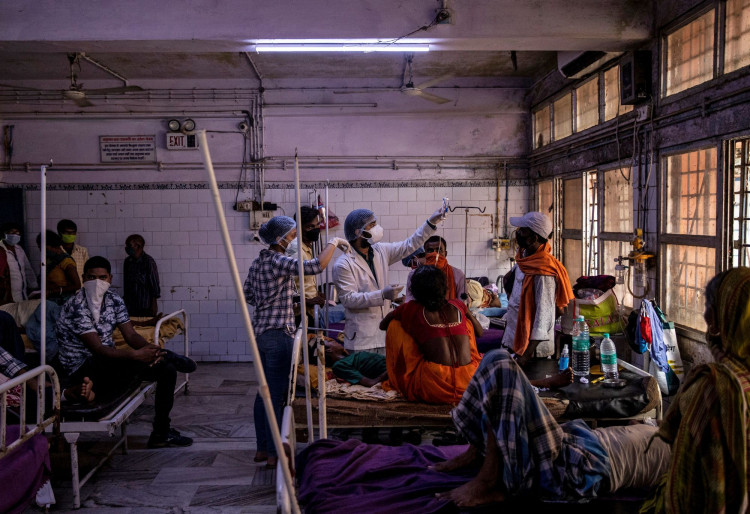Researchers continue to look into how the coronavirus is spread rapidly in hard-hit countries with India recently becoming the center of super-spreader studies.
Big Study: Super-Spreaders In India
A study based on widespread contact tracing that involved more than 3 million people in India found that around 8% only of the country's confirmed COVID-19 cases led to around 60% of the national infections.
The study was published in the journal Science. The research was led by director of the Center for Disease Dynamics, Economics and Policy, Ramanan Laxminarayan, and was the first of its kind in a developing country.
While super-spreaders have been suspected of spreading the virus to some extent, the study solidified earlier observations that these patients had the capacity to transmit COVID-19 to more than five people.
"We've never had this degree of information to say, hey, some people are really transmitting the virus in a massive way," Laxminarayan said.
The study determined that, of the cases studied, 70% of the original patients couldn't be traced back to new coronavirus infections in the community.
Environmental Focus On How Super-Spreading Transmission Works
Before the study was published there were questions about how super-spreaders had the capacity to unintentionally spread the disease to large numbers. Environmental factors were among the answers that the study provided.
It traced 78 people who shared trains or busses with patients infected with COVID-19. The subjects were in the vehicles for more than six hours. Of those tracked, health workers found almost 80% became infected.
It is expected further studies with more detail will be released soon.
Recent University Cluster Highlights Super-Spreading
A super-spreader has been placed at the center of a new cluster at Swansea University in Wales after 32 confirmed infections were traced back to one person.
University registrar Andrew Rhodes said the super-spreader "came from outside the area" and new cases stemmed from a party attended by the person. Rhodes said that as school resumed there were "some students who have enjoyed themselves more than they should have done" by going to parties outside their residences.
Swansea University has warned students to avoid large gatherings or parties outside their residences or apartments. No cases have been traced back to the university itself.
Threat Of A Third Wave Focused On Super-Spreading In Victoria
Epidemiologists in Australia said that with more results proving that super-spreading events are happening around the world, the way to prevent a third wave of COVID-19 infections is by blocking such scenarios.
Clinical epidemiologist at the University of Newcastle, Craig Dalton, said the first signs that a coronavirus-infected patient was a super-spreader, swift contact tracing measures should be conducted.
Furthermore, Dalton said it was best to keep nightclubs closed until a sure vaccine against the virus is developed. Nightclubs in Victoria are frequented by younger people who are more likely to become super-spreaders.
Victoria has seen several cluster infections that could have been caused by a super-spreading event, but more research needs to be done to prove some of the cluster cases in the state were caused by a single person.
Church Wedding Sparks New Outbreak In Maine
In August, a rural church wedding in Maine triggered a string of COVID-19 infections in at least two other locations.
As of mid-September, more than 170 infected patients were linked to the wedding. At least seven people who died of the virus have been connected to the wedding. They came into contact with wedding attendees.
Health care workers are investigating two outbreaks believed to have links to the attendees.





